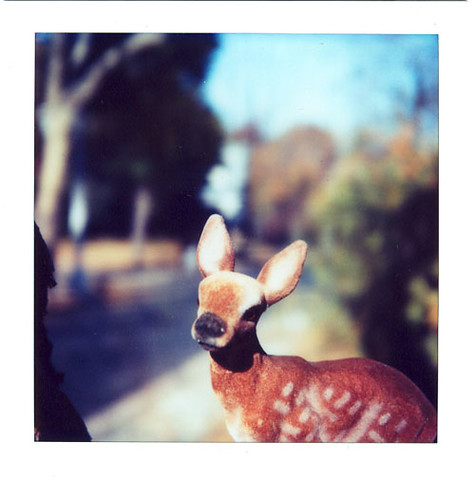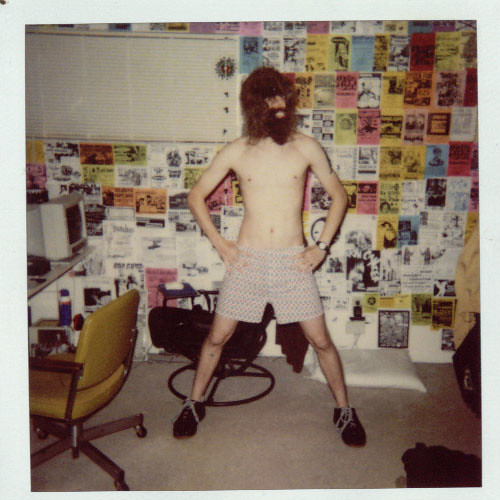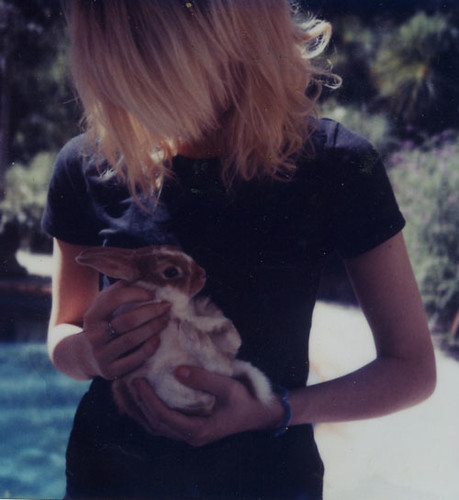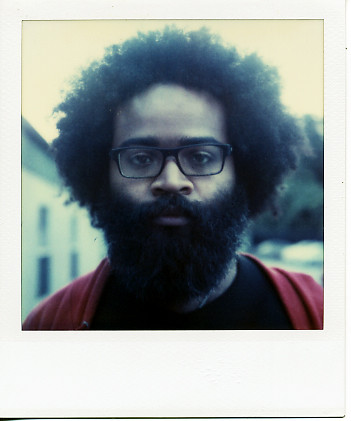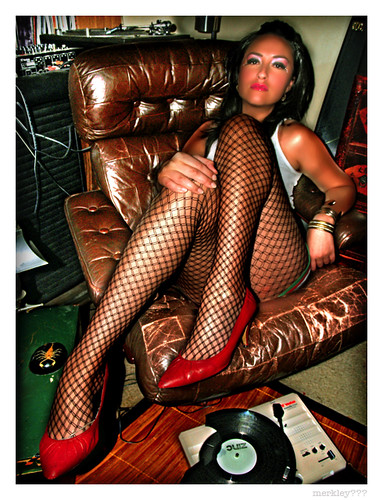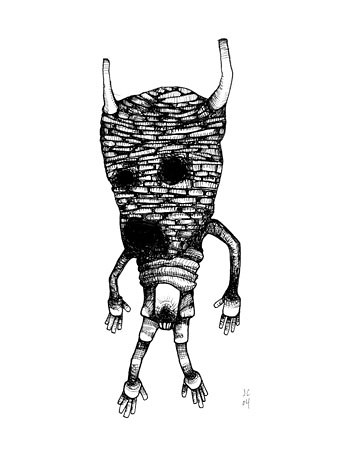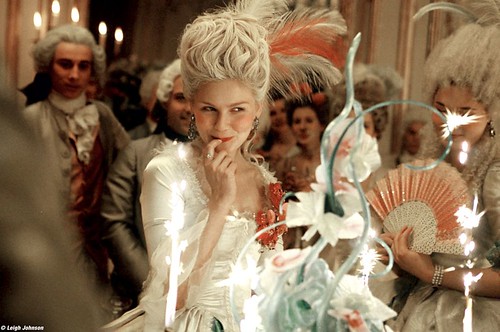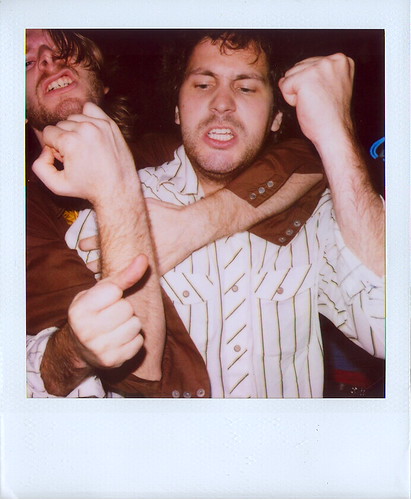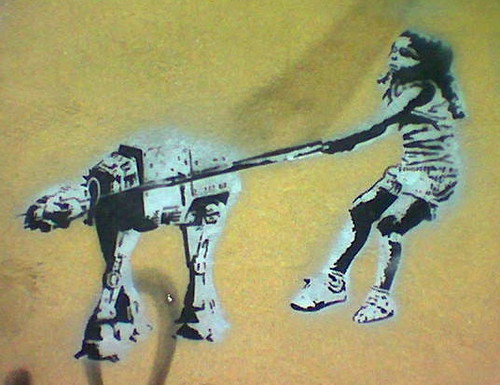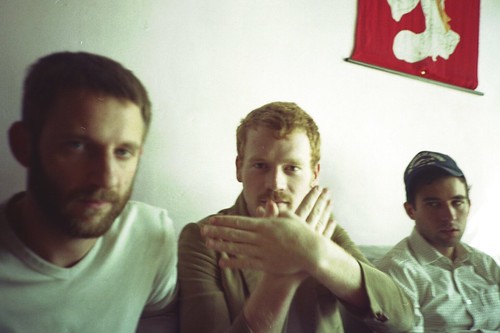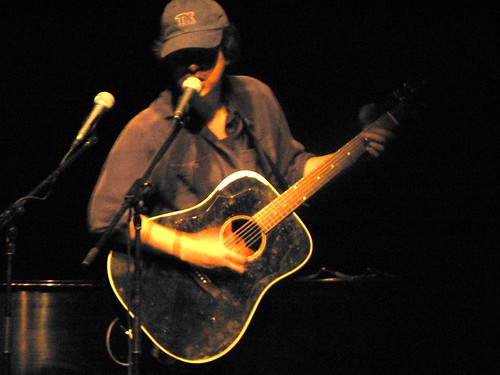
So, typically here on macktronic we don't have long reviews, either by myself or by other writers but I've decided to make an exception this time.
M. Ward's latest release, titled
Post-War, is an extremely powerful and poignant album. In a recent
SF Weekly article, Garrett Camps does a fantastic job at connecting the album to today's atmosphere (both political and otherwise). Here it is in the entirety (also accessed
here).
Hippies, though admirable and well intentioned, often compensate for their excellent politics with profoundly lousy art. Which is a real bummer, as our current political situation is profoundly lousy — as you might have heard, we're living through one epic backlash against the '60s and liberal democracy and yada yada. Meanwhile, the last few decades of progressive mewling have really only amounted to Bravo's programming lineup; the revolution may not be televised, but Project Runway will be.
So yeah, let's say you're a musician setting off to make a record about the times. Do you take the hippie route and make something like Neil Young's recent Living With War — a painfully on-the-nose bit of classic rock with, unfortunately, all the staying power of a Sean Hannity soundbite? Or do you set your mind to a different task?
"I've never been that interested in recording the sound of me getting something off of my chest," says the contemplative singer-songwriter M. Ward, calling from his touring hotel room in Sheffield, England. "I'm much more excited and enthusiastic about the idea of recording a record that's maybe gonna last a little while."
For some time now, Ward has been doing just that. The 32-year-old came up in the '90s in San Luis Obispo, with the understated roots-rock band Rodriguez. Late in the decade he went solo, and in 2000 released his debut, Duets for Guitar 2, on Giant Sand journeyman Howe Gelb's label. Since then he's settled in Portland and put out four more records, all the while honing his surprisingly distinct (he really has few peers) brand of dusky, sparse indie-folk blues. His latest is called Post-War.
Obviously this is a record that has something to do with our current sociopolitical quagmire. And yet, curiously, there's not one reference to anything literal, to anything that's actually happening — no President Talking to God, no indignant rebuke of "the thought police." (Not to suggest that's all that literal, but I'm sure it is to Neil Young.) What Post-War offers instead are songs like "Chinese Translation," one of Ward's best (superfans might liken it to "Helicopter," from 2003's Transfiguration of Vincent). The song rides some jaunty guitar strumming and brushed drums, and tells the tale of a chap who asks a wise man, "What do you do with the pieces of a broken heart?" And the wise man basically says, "That reminds me of the time I went to a wise man to ask him, 'What do you do with the pieces of a broken heart?'" And then the wise man's wise man says the same thing, etc. Elsewhere we find the sweet-swinging singalong "Rollercoaster" with its playful ragtime piano, the foot-stomping she-done-me-wrong hoot "Magic Trick" (co-written by My Morning Jacket's Jim James), and the charging Daniel Johnston cover "To Go Home," featuring backup vocals by Neko Case. And then there is the title track, and for that we will require a new paragraph. Several, actually.
"Post-War," like the album it anchors, has everything and nothing to do with war. A slow dance bathed in fluttering Rhodes chords, it's the record's most beautiful, heartbreaking tune (what "Fuel for Fire" was to last year's Transistor Radio), and it exemplifies exactly what this record has to do with what's on your TV screen (well, not the porn). But to explain it we need to get a little wanky.
Let us now travel back in time to when we were kids playing the game that every kid plays: tag. There were precisely two locations in tag — the ether wherein you could be tagged, and the ether wherein you could not, called "safe." Safe — whatta concept!
M. Ward's music is safe. There is the real world with its parking tickets and the war and George Bush, and then there is this place where Ward's music comes from, a place the keening anxiety that seems to define these times cannot intrude. There's the Feeling of Being Chased ("war"), and then there's Safe ("post-war," and thus Post-War). And all the hippies with their platitudes — even you, Neil — are trying to pretend that safe is just a protest away, but it's not. Safe isn't left or right, Air America nor Rush Limbaugh. Safe is the product of private meditation and focus. (Which, when you think about it, is precisely what children are practicing when they play some really good tag.) And safe is what Matt Ward is trying to express with his music, and he does a really good job at it, not because he's out there making judgments about what's right and wrong, but exactly because he's not. "I know that everything feels wrong/ I've got some hard, hard proof in this song," he sings in "Post-War." And the proof? Is it the knocking of the thought police? No, man, the proof is the song itself, the weight of it, the way the chords suck you down — it actually sounds like the man has a block around his ankle and he's swimming up, against the tug of it. And it's beautiful that way, too, the light twinkling atop a surface just out of reach: "I'll know when everything feels right/ Some lucky night."
"All of the records for me are living in this naive fantasia where people care about each other's well-being," he says. Ward speaks with the kind of slow, reflective grace that you just obviously figure he would. He's just a really sweet dude. "It's a crazy, absurd fantasy that is the best place to write these songs in."
Now I'm not saying you retreat entirely into this idealized utopia, or suggesting that you don't protest and stop caring. Your Mumia T-shirt is fine, you're showing solidarity, etc. What I'm saying is we're in kind of a situation here, still at war, and it's actually, almost unbelievably, getting worse. And clearly all the nattering about left and right and up and down isn't getting us anywhere. We need some new ideas — we need to get creative. And in order to feel creative we have to feel safe. We have to feel like there's the possibility of another world, a safe world, which will evolve and dissolve and disappear, which is where we're at now. But then you just re-imagine a new one, and you slouch toward that. And perhaps that, truly, is how you live with war.
"No one's really interested in bridging the gap," Ward says. "It's more an interest in fighting the Rush Limbaughs and Bill O'Reillys of the world, which is really important to do because I can't listen to that stuff for even a second. But I guess I'm most interested in hearing the opinion of someone who has the creativity and the intelligence to make a peaceful statement."
I just thing he did a better job at analyzing the record than I could have. Here's a couple tracks off the beautiful record.
:::
M. Ward - Chinese Translation:::
M. Ward - Poison Cup:::
M. Ward - To Go Home (Daniel Johnston cover)
I suggest you go buy Post-War over at Insound (12 bucks for a CD and 13 for the LP).
[Hint: If you use the code "ilovesummer10" at checkout then you automatically get 10% off. Plus free shipping on orders of 30 bucks.]
Sand is Overrated has a bunch of other M. Ward tracks and a nice review of the album. Good review of his whole career.
Muzzle of Bees has most of M. Ward's KCRW live performance MP3's. An excellent blog all around if you're not already familiar.
[Find/Listen/Download music over at
The Hype Machine.]
[Photo credit goes to
frozenchipmunk.]
Tags: mward, m ward, postwar, post war, post-war, folk, music, indie, americana, mp3, macktronic, cannonball!





